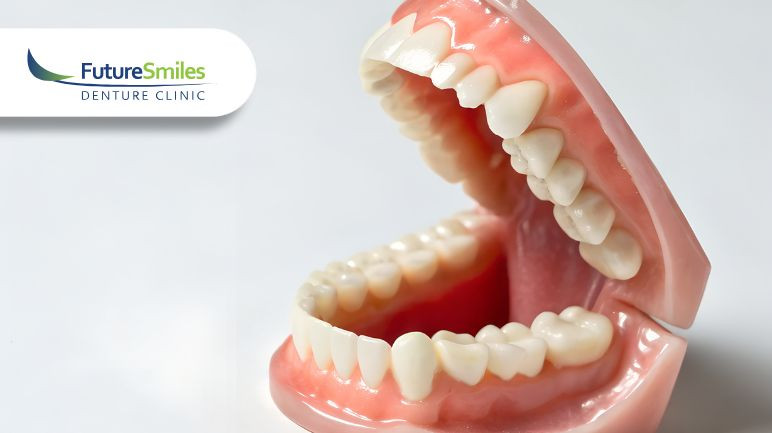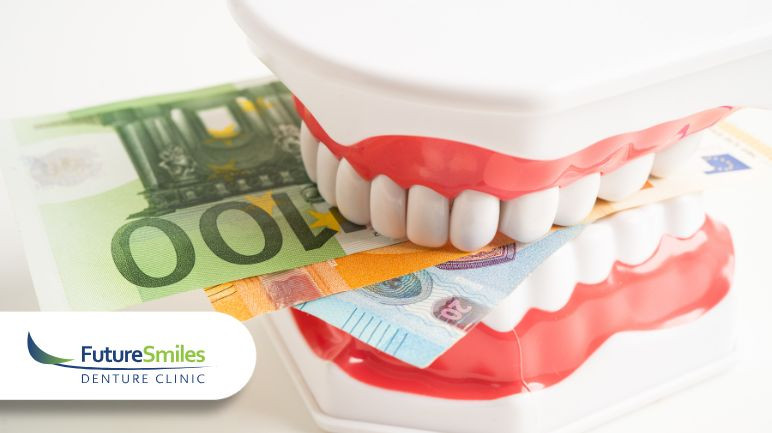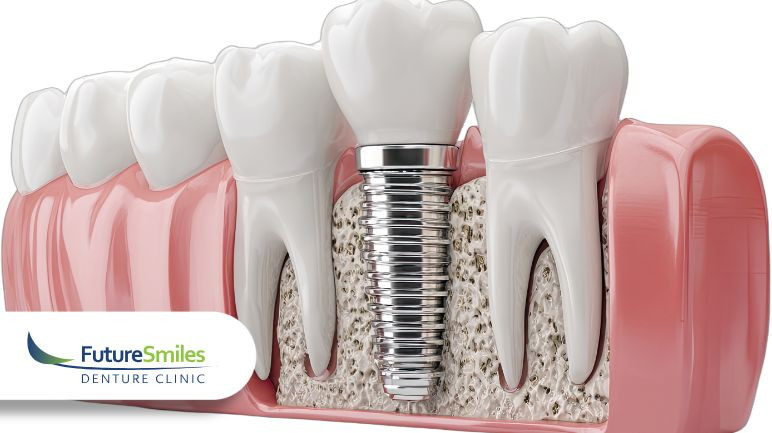Do you suspect that you have an infected tooth implant? If left untreated, it can lead to bone loss and implant failure. Here’s how to know when it’s time to visit your denturist for treatment.
Tooth implants are favoured by many patients as the optimal tooth replacement option because they are natural-looking, durable, and can last for many years. However, there are times when an infection may form around the dental implant. This is a form of gum disease known as peri-implantitis.
It can happen for a number of reasons, including:
- Lifestyle habits (smoking)
- Poor oral hygiene routine
- Bite misalignment
- A compromised immune system
- Bruxism
Affordable and High-Quality Tooth Implants in Calgary
At our Calgary denture clinic, we believe that tooth replacement is not a one-size-fits-all treatment. That’s why we offer a wide range of denture solutions, from traditional dentures to tooth implants, to suit all needs, budgets, and lifestyles.
In addition, we offer flexible payment plans and direct billing services to make payments as convenient and affordable as possible.
Want to know more?
9 Signs of an Infected Tooth Implant
Dental implants look and function just like natural teeth, and because of this, they can become infected, just like your natural teeth. Often this occurs when your tooth implants are neglected or don’t receive regular check-ups from your dental professional.
When To Check Your Dental Implants
How to Know If Your Tooth Implant is Infected
It is very normal for patients to experience some discomfort and pain after their tooth implant procedure. While the duration of the pain varies, you can typically expect it to last between 7-10 days after the treatment. However, if you are experiencing pain 3-4 weeks after your procedure, it could be a sign of infection.
Features of an infected dental implant are similar to those of gum disease and can include the following symptoms:
- Loose tooth implant
- Red and swollen gums around the implant
- Bad breath and a bad taste in the mouth
- Throbbing pain around the implant.
- Visible pus
- Difficulty chewing
- Fever
- Bleeding around the implant when you’re brushing
Why You Should Visit Your Denturist If You Have an Infected Implant
Peri-implantitis has the potential to be very destructive and aggressive. Not only can it lead to implant failure, higher dental costs, and bone loss, but it can also lead to a systemic illness that can cause damage to your heart and other organs.
Remember: If left untreated, low-grade bacterial infections such as peri-implantitis have the potential to become very serious, very fast.
How Do You Treat Peri-Implantitis?
Your dental healthcare professional can diagnose peri-implantitis quickly using a clinical exam and radiograph. If you do have an infection, the long term goal of your treatment will be to stop the progression of the infection and prevent implant failure.
Depending on the level of infection, your denturist may prescribe:
- Special mouth rinses
- Antibiotics
- Surgery
- Laser therapy
- Mechanical debridement
- Antimicrobial therapy
Do you suspect you have an infected tooth implant?
3 Simple Tips For Preventing Dental Implant Failure
Known as the golden standard for restorative treatment, tooth implants are extremely durable and not susceptible to decay. However, despite their permanent nature, without proper care, they can still fail.
If you are a candidate for a tooth implant surgery, here are a few tips that will not only help you avoid implant failure but also keep a healthy and beautiful smile for many years to come.
-
Practice Preventative Care: By keeping your implant clean with regular brushing and flossing, you’ll minimize the development of bacteria and reduce your risk of developing an infection, which can lead to implant failure.
-
Stop smoking: If you’re a smoker and you’re thinking of getting implants, now is the time to quit. Not only is smoking dangerous to your overall health, but it can also delay your recovery from implant surgery and increase your risk of peri-implantitis.
-
Treat your bruxism: While teeth grinding may seem harmless, it can actually cause damage to your implants. When teeth are constantly being clenched, it may prevent the implant from bonding completely with the bone, leading to implant instability.
Call Today
If you’re considering getting tooth implants, or currently have implants but are concerned about implant failure, visit our Calgary denture clinic or contact our dedicated and knowledgeable team at (403) 475-0016 or book a consultation.






